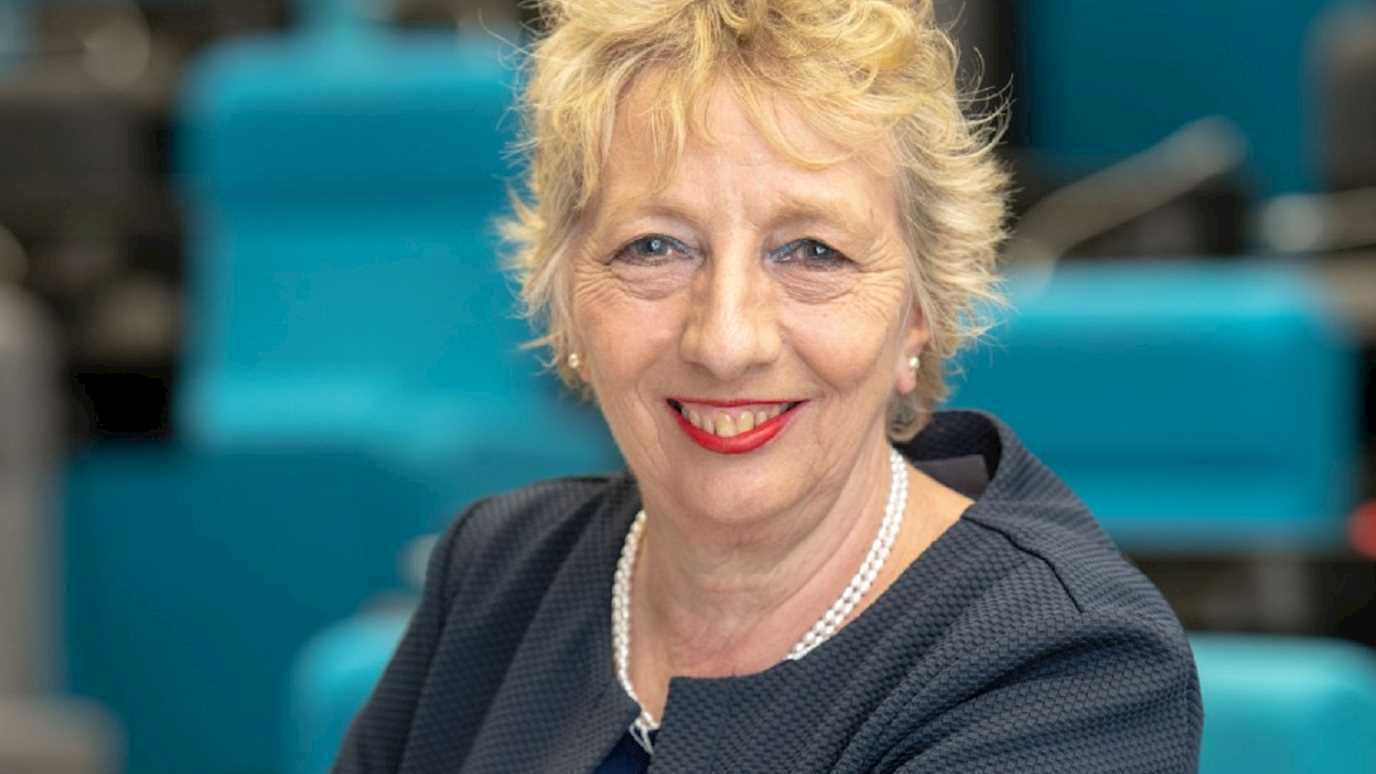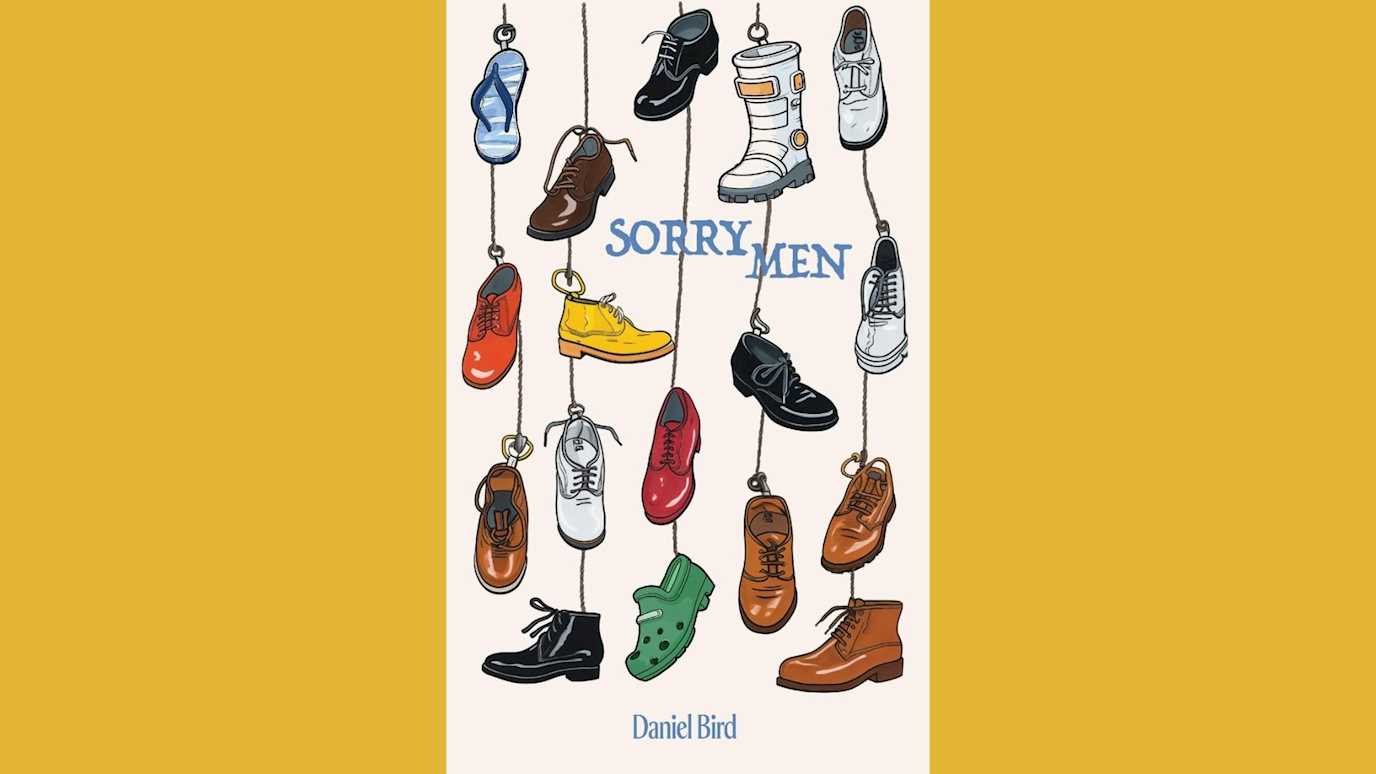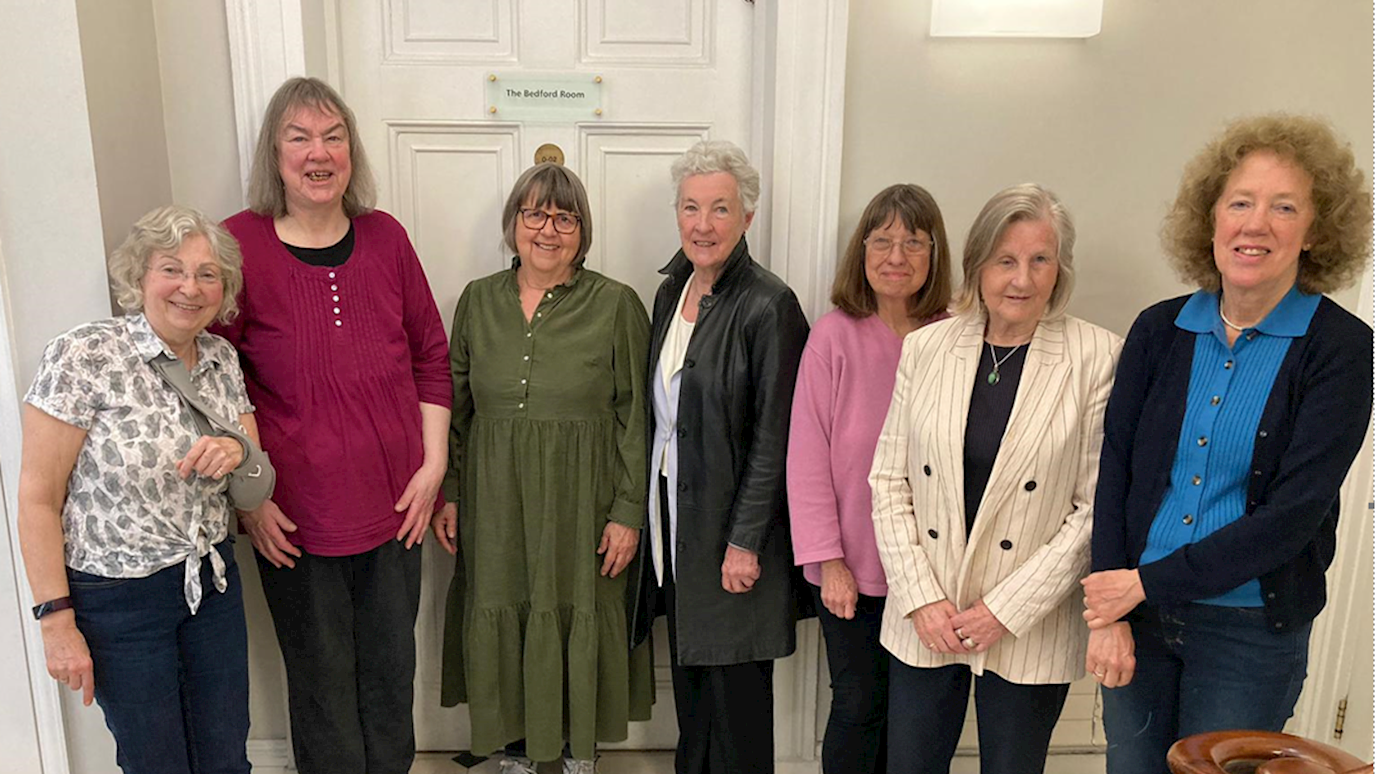Alumna Fiona Wilkinson (BA French with Italian, 1976), only the third female president of the Institute of Chartered Accountants in England and Wales (ICAEW), talks to writer and alumna Jessica Jonzen about overcoming sexism, working mothers and how Royal Holloway helped to set her on her career path.

Despite her parents’ expectations that she would stop working once she got married and had a family, Fiona was determined to have a career. “Most of the women in my year group were either going to be teachers or trilingual secretaries and I just thought ‘I don’t want to be a secretary – I want to be the boss.’”
Having spent a year abroad teaching in France (“I quickly realised that I didn’t want to teach when I graduated!”) many of Fiona’s peers graduated a year before her, and some went into accountancy. “I didn’t think it sounded interesting at all but a couple came back one weekend and we got talking and it sounded like a good career. When I realised that you could have any degree – I’d always thought it had to be in Maths but the big firms just wanted a first or a 2:1 – my decision was made. My parents were bemused because they had no idea what accountancy was.”
When she qualified as a Chartered Accountant in 1980, just 10% of her peers were women.
“If you’d said to me then, ‘one day you’ll be president of the ICAEW…’ – even if you’d said it to me in 2010 – I wouldn’t have believed you!”
Fiona spent the first 11 years of her career with Deloitte in London and Jersey, with secondments in Europe and Canada working on cases including the collapse of Bank Ambrosiano, a huge fraud investigation in Geneva and the consolidation of telecommunications company Bell Canada. “Accountancy is a great profession because it’s very varied – if you’re not an accountant, you think it’s simply doing some book keeping and tax returns but most of our members are business leaders doing all sorts of things. They might be a managing director or a chief executive or work in the public sector,” she says.
“It’s a very portable qualification – subject to being able to speak languages and visa requirements, you can work pretty much anywhere in the world. Anywhere you have economies, you need accountants.”
Having been unsure as to whether she wanted to get married or have children at all, Fiona did indeed marry and went on to have three children. She left Deloitte in 1987 and set up her own business working as a consultant for other firms of accountants. “I was able to do that fairly small scale to keep my hand in because, at one point, I had three children under five. Because what I do is very technical, I had to keep [my career] going and I built it up subsequently.”
Fiona is proof that accountancy is a career in which people can take time to work flexibly and still reach the top rung of the ladder.
“I think it’s a great career for women because you can become self-employed and work around a family which I think suits a lot of people.”
But while the ratio of new Chartered Accountants qualifying is now “about 50/50” that falls dramatically in more senior roles. Does she think that Dame Helena Morrisey’s goal of having boards made up of 30% women is achievable? “I think it will improve as attitudes change but it’s still something we need to work at because it’s something that can slip very easily,” she says. “The other issue is that a lot of the women on those big boards are non-executive directors rather than executive directors and that’s the next hard nut to crack. You’re part-time, you’re advisory, but we still don’t have that many women in these major executive roles.”
How does the ICAEW shape up on the equality front? “We’ve looked at our gender pay gap here and I think the big issue is that people misunderstand it and think it’s an equal pay issue – it’s not, I’m quite satisfied here that it’s not an equal pay issue – every year a big exercise is done double checking. It’s a power gap and it tells you who holds the most senior roles.”
The ICAEW has five executive directors plus the Chief Executive, “so out of the six really senior people here only one is female,” says Fiona. “But then I look at their workload and the fact that they do a lot of international travel, there are a lot of evening events and dinners, it doesn’t suit women with young children. I think there’s very clearly a ‘motherhood penalty’ – it still tends to be the women in most cases who have to juggle how motherhood is going to work out and who is going to deal with the children. I don’t think that’s wrong – I think it’s up to couples to arrange their lives so I think it’s going to continue to be difficult for women to continue to get those top roles but I hope that that’s just because of informed and happy choices rather than discrimination,” she says.
One of the main threats to women’s careers now is de-skilling, says Fiona. “I think the problem is maintaining your skills. I was lucky in a sense in that what I do is very technical and it’s changing all the time so you have stay up to date. I knew that if I stopped work I’d probably never get back into the same career so I was almost forced to keep working. I don’t think I was making any money at all, or nothing significant, when I was paying for childcare for three children but I knew I needed to keep going. In some other careers you feel you can leave and go back but you kind of lose it and I think it’s going to become more and more important to keep something going from the point of view of technology.
"If you’ve been out of the work place for two years, things will have changed dramatically in the workplace.”
Fiona believes that women who keep their hand in will reap the rewards later on. “I think we’re going to see – and you can see it already – more women coming into their own when they’re 50 and their children have left home. I think that’s the bit that needs to be explored and opened up because how can women who may have been working part time get back into the very senior roles again and have a good career between 50 and 70? You’ve still got 20 good years of work left,” she says.
After the liquidation of construction giant Carillion and the near-collapse of café chain Patisserie Valerie, Fiona also has the task of rebuilding the reputation of auditing more broadly. “There have been some big audit failures so there have been some reviews into the public interest entity audits market. Clearly, we are at a watershed and changes are needed – I’m not defending bad audit work but there is a worry about the trickle-down effect and how it impacts on the small firms. I’m interested in rebuilding the reputation of the profession.
“Audits get criticised because they are backward-looking rather than forward-looking,” she says. “But I think you have to have audits because at some point you have to fix the numbers in time and see how they go.”
To top it all off, Fiona has also recently welcomed her first grandchild into the world. “It’s certainly going to be a year to remember.”
























